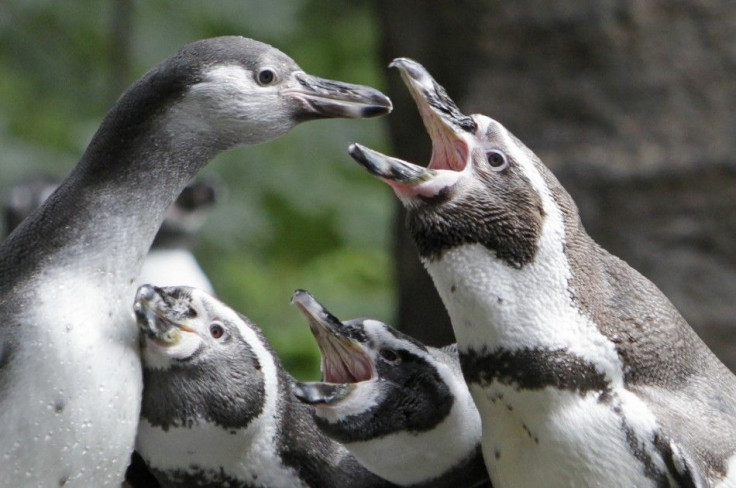Penguins Find their Family through Smell: Study

Penguins miraculously locate their homes and relatives in vast colonies under dire conditions as a result of their highly developed sense of smell, a new study has found.
Research carried out by the Chicago Zoological Society and the University of Chicago was the first of its kind to provide evidence of odor based kin discrimination in birds.
The researchers found that penguins have a much stronger sense of smell than originally thought allowing them to locate family member in their colonies even after days of travel.
A mix of breeding and non-breeding Penguins at Brookfield Zoo were the first to have their sense of smell tested, followed by an endangered species of Humboldt penguins found in Peru.
Researchers took odor samples from glands near the penguins' tails, where oil that the birds use for preening is secreted. They put the oil on cotton swabs and rubbed the odor inside dog kennels, similar to the enclosures penguins at a zoo use for their nests. They also put the odor on paper coffee filters and placed them under mats inside the kennels.
When the penguins were released researchers found that they travelled to the kennels that had familiar odors, because able to distinguish which penguins they had spent more time with prior to the experiment.
What I found particularly notable about the study was that the authors identified the oil secreted from the penguins' preen gland, which is rubbed on the feathers to make them water repellent, as the odor source used in recognition, said Bryan D. Neff, professor and associate chair of biology, University of Western Ontario
Oils are used in kin recognition by species of other animals, most notably a variety of insect species, including bees and wasps, which when considered with the penguin data provide a wonderful example of convergent evolution, he added.
Researchers have said that it is important for wild penguins to return to their colonies for the purpose of nesting. Their strong sense of smell can help them distinguish between their mates and siblings.
© Copyright IBTimes 2024. All rights reserved.





















